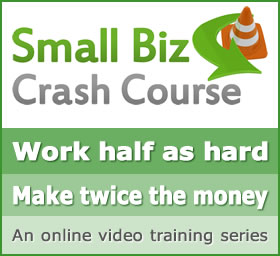Copyright © 2010 Ask The Business Lawyer
Here’s a terrific article on how to avoid the pitfalls of losing control of your intellectual property from our legal guru, Nina Kaufman.
“Teaming up with another company on a project creates many benefits. It makes your business better known, leads to a bigger client base, and enhances creativity. These partnerships often result in new intellectual property, which has to be protected. Many business owners realize too late that (1) they had valuable intellectual property, and (2) they could have taken steps to protect it.
For example, “Vivienne,” was a former school psychologist who worked for years with disadvantaged children. Her friend, Fiona, wrote about financial education and financial management for adults.
Together, they developed an interactive financial literacy workshop and board game for children called, “Show Me the Money!” The collaboration hit a snag when Vivienne wanted to use the workshop for her own project with at-risk adults. Fiona then realized that “Show Me the Money!” - if used with a general adult population - could steal her thunder . . . and profits. So what steps can they take to move forward smoothly?
1. Keep an open communication. In an ideal world, Fiona should have given thought to the implications of a joint collaboration before freely sharing her concept. However, life is never always ideal. The solution: Fiona should voice her fears with Vivienne, and work out a mutually beneficial agreement on the intellectual property. In this case, it’s better late than never.
2. Be aware of the stakes. Fiona and Vivienne actually have some form of copyright protection, even without a written agreement. Copyright law accords protection to original works, literary or artistic. As joint developers of the game, Vivienne and Fiona are “joint authors”. Each has full rights to make use of the game without the consent of the other, but would have to pay the other her share of the money. This can get sticky. The solution: Set up clear guidelines on how and where they can each use the program, and establish if each can alter the “Show Me the Money” game without requiring permission from the other.
3. Look into the crystal ball: The game “Show me the Money” has the potential to be hugely successful and become its own trademark. A trademark is defined as a word, phrase, symbol, design or any combination of them, that separates the work or goods of one from another.
There is every possibility that there could be several spin-offs as books, workbooks, notebooks, e-books, teleclasses, t-shirts, coffee mugs, CDs and any number of other related services or products. Any of these can be trademarked (for products) or servicemarked (for services) by either Fiona or Vivienne, giving rise to any number of complications, notably “who owns it?”
The solution: Avoid an expensive and ugly legal confrontation by agreeing on the trademark ownership, and when and how it can be used.
4. Ensure the idea is not stolen. Should Fiona and Vivienne go ahead with the collaboration, they must ensure that no one else can use the “Show Me the Money” design and trademarks. The solution: Apply for copyright protection for the game (lots of information and forms on the US Copyright Office website, http://www.copyright.gov.) Secondly, any designer hired for the game, graphics or website should be “a work for hire”.
This is important as design rights belong to the creator, unless there is a prior written agreement that they were for another (copyright language: work for hire).
Lastly, in handling the manufacture of the game, both need to confirm all the terms related to pricing, quantity and quality, and make sure the manufacturer keeps the game under wraps.
This is an essential move as, while Fiona and Vivienne cannot protect the general concept of a board game, they can protect their version of the idea for life skills. Therefore, confidentiality is a key provision.
Luckily, Fiona and Vivienne were good enough friends that they could take a step back and address all these issues in an amicable way that satisfied them both. But other entrepreneurs may not be so fortunate. Know that whenever you’re in a collaboration situation, there may be intellectual property issues lurking around.
Make sure you’re protected by consulting with an attorney. Otherwise, you leave your “brain child” vulnerable to kidnapping by someone else.”
Fed up with crazy legal issues in your small business? Check out Nina Kaufman, Esq.’s user-friendly business law resources at GreatBusinessLawResources.com. She cuts through legal gibberish to save you time, money, and aggravation. She also writes and blogs for Entrepreneur Magazine online. Get your free copy of her Intellectual Property Info Kit today!
Source: http://www.submityourarticle.com
Permalink: http://www.submityourarticle.com/a.php?a=91646



{ 3 comments… read them below or add one }
Nina Kaufman is the “real deal”. Every solopreneur needs to take her advice to heart. It will save so much heartache!
This is a great article full of good advice. Can you suggest a good copyright/trademark lawyer in the tristate area? (someone who can work with a small biz, not a big corporation.) Thank you so much.
Nina Kaufman is our “go to” attorney for small businesses. She really gets it. She’s sharp, experienced and gets the job done without robbing you blind. She also has a great sense of humor. Go to: http://www.askthebusinesslawyer.com to learn more about her.